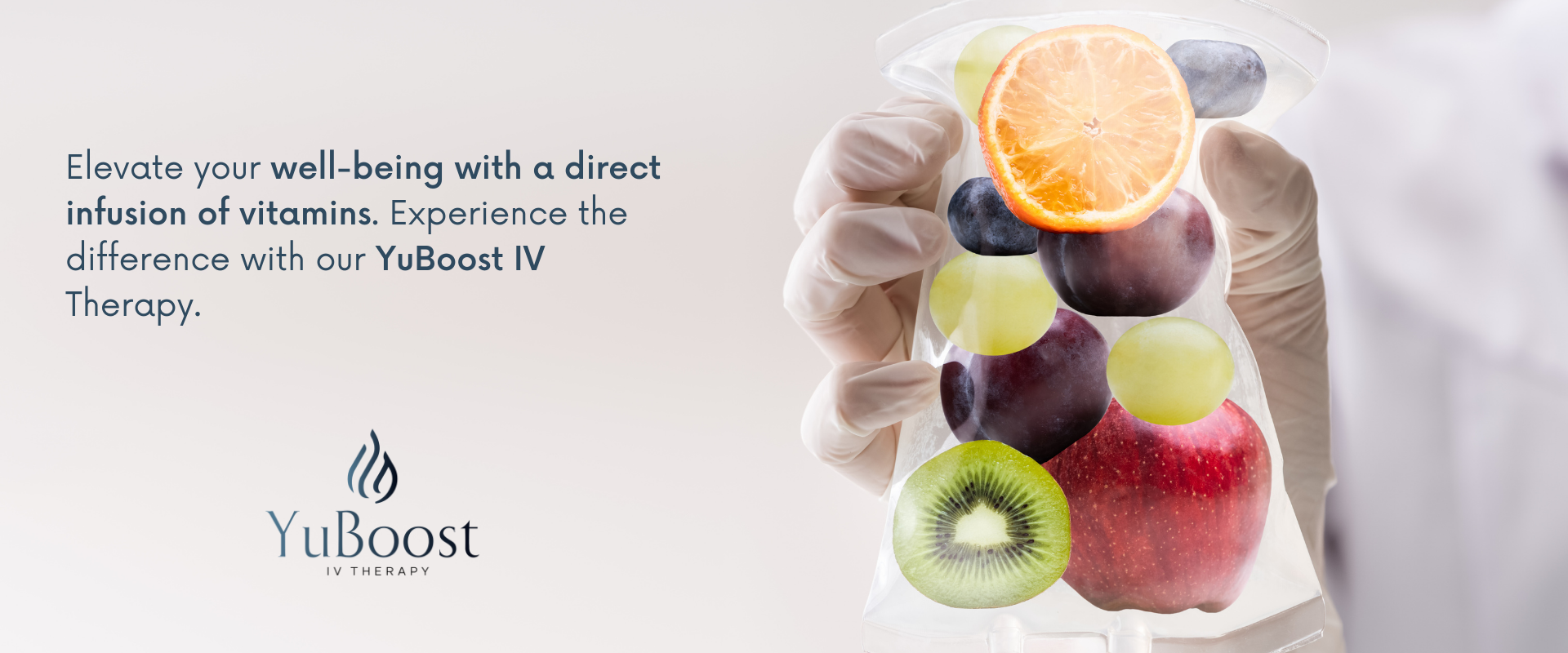In what cases should vitamin C be taken?
Ascorbic acid, more commonly known as vitamin C, is water-soluble, which means that it dissolves in water. It’s found in abundance in citrus fruit, as well as in other fruit and vegetables (raspberries, kiwis, tomatoes, green vegetables, etc.). A daily intake of 75 milligrams is recommended for women, versus 90 milligrams for men. If ever you have a deficiency, related to insufficient dietary intake or various risk factors, intravenous injections of vitamins, minerals and antioxidants can be a rapid, effective solution. As the infusion is administered directly into the bloodstream, the vitamins are 100% absorbed by the body almost instantly. Here, at YuBoost, we propose a wide range of IV therapies, provided by a team of qualified nurses, specialized in home care. As such, you can have the treatment at home, at work or in your hotel room, and be ensured of optimal comfort.

Signs and symptoms of vitamin C deficiency
A wide range of symptoms are likely to warn you of vitamin C deficiency. You may experience intense fatigue, irritability or joint pain. You may also notice dermatological reactions, such as hair loss, brittle nails, dry skin or bleeding around the gums. These symptoms can be explained by vitamin C’s role in collagen production and, more generally, its beneficial action on skin healthiness. Likewise, you may heal more slowly as ascorbic acid plays a role in the formation of scar tissue. Blotches may appear on the skin, caused by broken blood vessels. Some people may also develop anaemia, characterized by insufficient iron in the blood; ascorbic acid actually plays a key role in iron absorption. Deficiency can also be accompanied by weight loss.
Vitamin C deficiency: vulnerable people
Vitamin C deficiency is rare in Western countries today; however, it can occur as a result of poor diet, for example in people on a diet low in fruit and vegetables, in smokers or those close to them who are exposed to ‘passive smoking’ over the long term, or in cases of drug and alcohol abuse. Some factors, such as aging, sun exposure and genetics can also result in a reduction of the amount of vitamin C in the body. Furthermore, pathologies such as immunodeficiency, diabetes or inflammatory disorders can lead to greater consumption of vitamin C stocks. Deficiency has frequently been observed in people suffering from the Covid-19 virus.
The benefits of vitamin C injections
If you’d like to relieve your symptoms rapidly, you can opt for intravenous vitamin injections like the ones YuBoost proposes. This is an effective solution and you’ll be able to feel the benefits within a few days of the infusion. Benefits include increased energy, reduced fatigue, fewer signs of skin aging (wrinkles, fine lines), as well as fewer dark circles and more even complexion. Vitamin C has antioxidant properties that help protect cells against free radicals, which are partly responsible for tissue aging. In the event of an infectious disease, an acceleration in the healing process can also be seen thanks to a boost in immune defences. Moreover, a vitamin C supplement helps the body absorb iron better.









